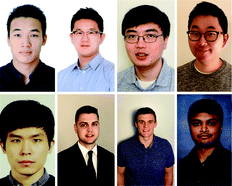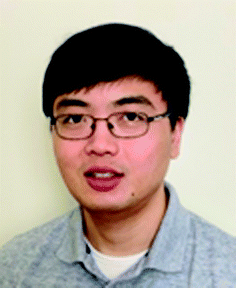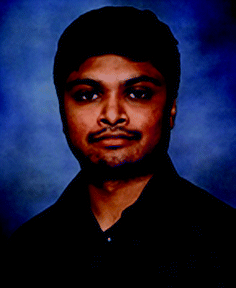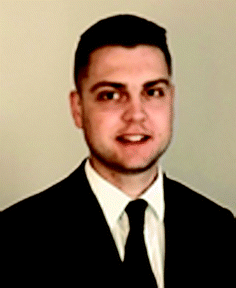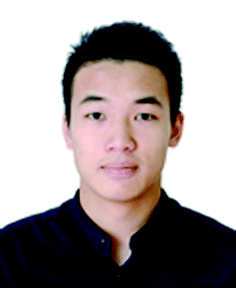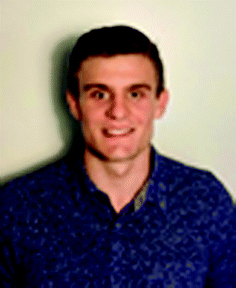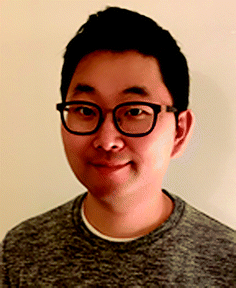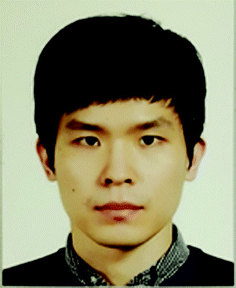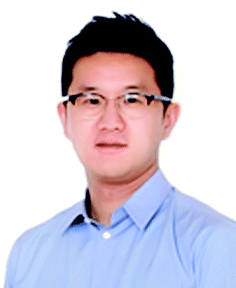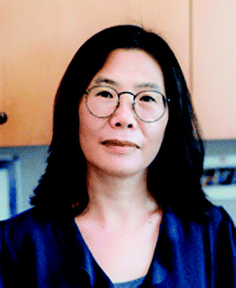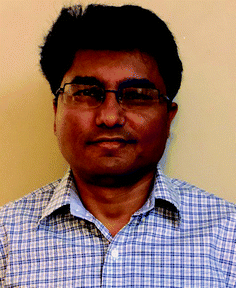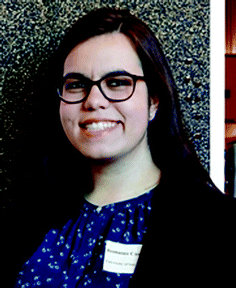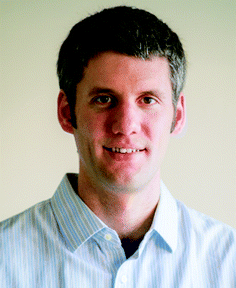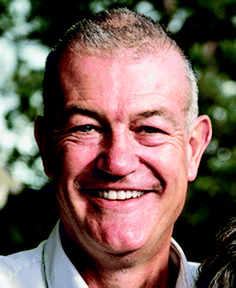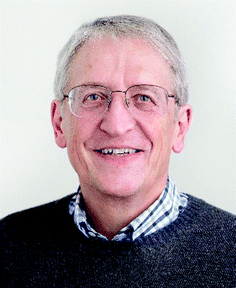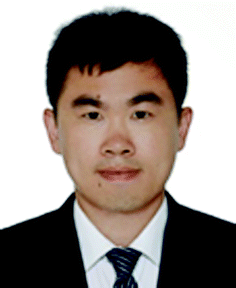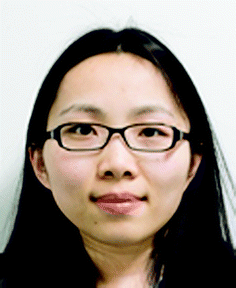DOI:
10.1039/D0MH90070B
(Editorial)
Mater. Horiz., 2020,
7, 2783-2790
Materials Horizons 2019 Outstanding Paper awards
Following on from the success of our inaugural Materials Horizons Outstanding Paper Awards last year, we are delighted to introduce the winners of our 2019 Outstanding Paper Awards in this Editorial.
Our selection process remains the same as last year (see our introductory Editorial from 2019) retaining the focus on the science presented and the potential future impact of the work. Similarly to last year, the quality of the articles we published throughout 2019 was excellent, and therefore we have chosen to again award not only our most Outstanding Paper but also a runner-up and an Outstanding Review in 2019.
Please join us in congratulating our winners, we hope you enjoy reading their outstanding articles as much as we did.
Materials Horizons Outstanding Article 2019:
4D printing reconfigurable, deployable and mechanically tunable metamaterials
Chen Yang, Manish Boorugu, Andrew Dopp, Jie Ren, Raymond Martin, Daehoon Han, Wonjoon Choi and Howon Lee
In this outstanding article, the authors present an innovative 4D printing approach to create geometrically reconfigurable, functionally deployable and mechanically tunable metamaterials. Produced through digital 3D printing with a shape memory polymer, the lightweight microlattices show extraordinary ability in shifting stiffness and shock absorption by orders of magnitude, as well as in reprogramming of their shapes for a variety of purposes. The authors envision that the new class of programmable architected materials with remarkable versatility and adaptability may lead to a broad range of smart engineering applications.
Professor Howon Lee's research group at Rutgers explores fundamental science at the intersection of mechanics, materials science, and engineering physics, with particular focus on developing innovative additive manufacturing technologies for soft functional materials. With novel materials, designs, and process technologies, the group explores new engineering applications in a broad range of areas including 3D/4D printing, metamaterials, soft robotics, and biomedical devices.
Materials Horizons Outstanding Article runner-up 2019:
Design and synthesis of two-dimensional covalent organic frameworks with four-arm cores: prediction of remarkable ambipolar charge transport properties
Simil Thomas, Hong Li, Raghunath R. Dasari, Austin M. Evans, Ioannina Castano, Taylor G. Allen, Obadiah G. Reid, Garry Rumbles, William R. Dichtel, Nathan C. Gianneschi, Seth R. Marder, Veaceslav Coropceanu and Jean-Luc Bredas
In this outstanding article, the authors discuss two-dimensional (2D) fully pi-conjugated covalent organic frameworks (COFs), which are promising electrically active organic materials. Taking an approach combining synthesis and computational design with thorough theoretical and experimental characterization, they underline the potential of 2D COFs based on porphyrin cores and diacetylenic linkers to achieve ambipolar charge-carrier transport, with carrier mobilities that could approach 100 cm2 V−1 s−1. They also emphasize that electron–vibration couplings play an essential role in all pi-conjugated 2D organic systems. Finally, the authors highlight the critical importance of synthesizing large 2D COF crystallites to take advantage of these properties.
The results described in the article are the outcome of extensive collaborative undertakings under the umbrella of the Center for Advanced Two-dimensional Organic Networks (CATON). The work was initiated by joint computational design/synthetic efforts at Georgia Tech in the Bredas and Marder groups. In the next stage, thorough structural characterizations of the synthesized zinc–porphyrin COFs took place at Northwestern in the Dichtel and Gianneschi groups and involved powder X-ray diffraction, high-resolution transmission electron microscopy, and surface area analysis. Finally, steady-state and flash-photolysis time-resolved microwave conductivity measurements conducted in the Rumbles group at NREL were indicative of extended pi-conjugation in the zinc–porphyrin COF. It is only through such collaborative efforts that a comprehensive description was reached, pointing to pi-conjugated 2D COFs based on porphyrin cores and diacetylenic linkers as organic semiconductors with potentially record-high in-plane charge-carrier mobilities.
Materials Horizons Outstanding Review 2019:
Stimuli-responsive polymers for sensing and actuation
Liang Hu,* Qiang Zhang, Xue Li and Michael J. Serpe
In this outstanding review, Liang et al. detail the various synthetic routes for generating stimuli-responsive polymers, and cutting-edge examples of their use for sensing and actuation. Stimuli-responsive polymers that are able to respond to a variety of external stimuli, including physical (i.e., temperature, light, and electricity) and chemical (i.e., pH, biomolecules, and CO2) signals are detailed. Numerous examples of harnessing these responsivities for sensing/actuation are presented, which can have profound impacts on human health and behavior. While stimuli-responsive polymers have been known for some time, their ability to mimic nature has yet to reach its full potential.
Having all been in the Serpe Group over the same time period, the authors of this paper are still in close contact with one another. Profs Liang Hu and Qiang Zhang have used the expertise gained in Prof. Serpe's group to build their own research groups and programs, where they are training the next generation of stimuli-responsive polymer researchers at their respective institutions. Prof. Serpe is a frequent visitor to China, and to Prof. Liang Hu's and Prof. Qiang Zhang's labs, which keeps the lines of communication and collaboration open. This close and continuing mentorship of, and friendship with, former Serpe Group personnel is one of the most fulfilling parts of Prof. Serpe's job, and is what led to the publication of this joint review.
Dr Michaela Muehlberg, Executive Editor
Professor Seth Marder, Editorial Board Chair
Author Biographies:
Materials Horizons Outstanding Article 2019:
4D printing reconfigurable, deployable and mechanically tunable metamaterials
Chen Yang is a PhD candidate in the Department of Mechanical and Aerospace Engineering at Rutgers University – New Brunswick. He received his BS and MS degrees from the Hong Kong University of Science and Technology in 2011 and 2012, respectively, and his MS degree from Rutgers University – New Brunswick in 2015, all in Mechanical Engineering. His current research focuses on 3D/4D printing of shape memory polymers and hydrogels for mechanical metamaterials, biomedical devices, and active structures.
Manish Boorugu received a BS degree from GITAM University, India, in 2015, and an MS from Rutgers University – New Brunswick in 2018, both in Mechanical Engineering. He is currently a Process Engineer at Evolve Additive Solutions, where he is developing a production ready additive manufacturing system based on electrophotography.
Andrew Dopp received a BS degree from Rutgers University – New Brunswick in 2017, and an MS degree from Penn State University in 2018, both in Biomedical Engineering. His research focused on the emergent properties and interactions of liquid crystals and bacteria. Since 2019, Andrew has worked for Bristol Myers Squibb, where he is working in a clinical manufacturing facility to manufacture drug substances for early clinical trials.
Jie Ren received his BS degree in Mechanical Engineering from Rutgers University – New Brunswick in 2018 and his MS degree in Mechanical Engineering with robotics and control concentration from Columbia University in 2019. He is currently a Manufacturing Engineer at Saint-Gobain Performance Plastics, where he is working in automation and additive manufacturing.
Raymond Martin is a senior undergraduate student in the Department of Mechanical and Aerospace Engineering at Rutgers University – New Brunswick. He was the recipient of a New Jersey Space Grant Consortium Summer Research Fellowship in 2018. He has held a variety of internships within the aerospace industry including Northrop Grumman, Lockheed Martin and Blue Origin.
Daehoon Han received his BS and MS degrees in Chemical Engineering from University of Seoul in 2012 and 2014, respectively. He received his PhD in Mechanical Engineering from Rutgers University – New Brunswick in 2020. He is currently a postdoctoral associate at University of Minnesota. His research interest is focused on 3D/4D printing soft active materials and devices for bioengineering and biomedical applications. He is also the recipient of the 2018 Outstanding Paper Award from the World Congress on Micro and Nano Manufacturing.
Wonjoon Choi is an Associate Professor in the School of Mechanical Engineering at Korea University, Korea. He received a BS degree in Mechanical and Aerospace Engineering from Seoul National University, Korea, in 2003, and a PhD in Mechanical Engineering from the Massachusetts Institute of Technology (MIT) in 2012. He was a postdoctoral associate at MIT in 2012, prior to joining the faculty of Korea University in the same year. His research interests focus on the fundamentals and applications of multiscale thermal-fluidic transports, materials and devices for energy conversion and storage.
Howon Lee is an Assistant Professor of Mechanical and Aerospace Engineering at Rutgers University – New Brunswick. He received his BS and MS degrees from Seoul National University in 2004 and 2006, respectively, and his PhD from the University of Illinois at Urbana-Champaign in 2011, all in Mechanical Engineering. He was a postdoctoral associate at MIT before he joined Rutgers University in 2014. His research interest lies at the intersection of polymer science, mechanics, and advanced manufacturing, with particular focus on 3D/4D printing, metamaterials, and biomedical devices. He is the recipient of the Haythornthwaite Young Investigator Award (2016) and the Battelle/MIT Postdoctoral Fellowship (2012–2013).
Materials Horizons Outstanding Article runner-up 2019:
Design and synthesis of two-dimensional covalent organic frameworks with four-arm cores: prediction of remarkable ambipolar charge transport properties
Simil Thomas is an Assistant Professor of Physics at Government College, Nedumangad, India. He received his PhD in Theoretical Chemistry from Indian Institute of Science (IISc), Bangalore, India. His current research focuses on designing novel 2D covalent organic frameworks (COFs) with high charge carrier mobilities as well as calculating the energy level alignment at organic–metal and organic–organic interfaces.
Hong Li is currently an Associate Research Professor in the Bredas group at the University of Arizona. She received her PhD degree (1996) from Nankai University in China. She is an expert in first-principles modeling of the geometric and electronic structures of complex nanostructured materials and interfaces, especially metal and defect-containing metal oxide surfaces and their interfaces with organic molecular layers as well as the chemical reactivity and charge-transfer processes at such interfaces. Her current research interests include (1) two-dimensional covalent organic frameworks and their electronic and magnetic properties at the interfaces with metals, transition metal dichalcogenides, and graphene; (2) hybrid organic–inorganic perovskites for photovoltaic and light-emitting applications. Her computational expertise includes the application of density functional theory and
ab initio molecular dynamics methods to study the electronic and magnetic properties of surfaces, interfaces, defect-containing organic–inorganic hybrid semiconductors, and complex structured nano-clusters.
Raghunath Dasari is a Research Scientist in the School of Chemistry and Biochemistry at the Georgia Institute of Technology. He received his PhD from the University of Hyderabad, India, and holds a Master's degree from Kakatiya University, India. His research interests include development of organic materials for a wide range of organic electronic applications.
Austin M. Evans is currently a 4th year PhD candidate studying under the supervision of Prof. William Dichtel. Prior to joining Northwestern University's Chemistry department, Austin received his BS in Chemistry from the University of Tulsa where he was inspired to study synthetic chemistry by Prof. Justin Chalker. During his undergraduate studies, Austin also spent time as a Deutscher Akademischer Austauschdienst (DAAD) scholar researching organic electrodes for photoinduced water splitting at Ludwig-Maximilians-Universität München under the supervision of Professor Thomas Bein. Austin's current research interests focus on mechanistic understanding and the well-controlled polymerization of 2D covalent organic frameworks. In recognition of his scientific contributions, Austin has been designated as the MOF2020 Early Career Awardee, a National Science Foundation Graduate Research Fellow, an International Institute of Nanotechnology Ryan Fellow, and a Goldwater Scholar.
Ioannina Castano is a 3rd year PhD candidate studying under the supervision of Professor William Dichtel and Professor Nathan Gianneschi at Northwestern University. She received her bachelor's degree in Chemistry at the University of San Francisco in 2016 where she studied computational organic chemistry in the Castro/Karney research group. During her undergraduate studies, she participated in research experiences for undergraduates at Princeton University where she studied the electrochemical reduction of gases using membrane electrode assemblies under the supervision of Professor Andrew Bocarsly and at the National University of Singapore where she synthesized metal organic frameworks for gas separation processes under the supervision of Professor Dan Zhao. Prior to her graduate studies, she also interned at Argonne National Laboratory under the mentorship of Dr Jie Li. Ioannina's current research interests focus on controlling the growth of 2D covalent organic frameworks and characterizing these materials using emerging transmission electron microscopy techniques. She is the recipient of the National Science Foundation Graduate Research Fellowship and the International Institute of Nanotechnology Ryan Fellowship.
Dr Taylor G. Allen earned his BS in Chemistry from Western Carolina University in 2013 and his PhD in Physical Chemistry from the Georgia Institute of Technology in 2018 working under Profs Joseph W. Perry and Seth R. Marder. His thesis work studied third-order nonlinear optical properties of organic optoelectronic materials using ultrafast spectroscopy. Dr Allen is currently a Postdoctoral Researcher at the National Renewable Energy Laboratory (NREL) in Golden, Colorado. His research interests at NREL include using steady-state and ultrafast microwave conductivity techniques and optical spectroscopy to study the photophysics of charge generation and transport in optoelectronic materials for renewable energy applications.
Dr Reid received a BS in chemistry in 2004 (Pacific University, Forest Grove, USA), and a PhD in chemistry in 2010 (University of Washington, Seattle, USA). He spent three years as a post-doctoral researcher at the National Renewable Energy Laboratory (NREL) before accepting a research faculty position at the University of Colorado Boulder Renewable and Sustainable Energy Institute. He is currently an Assistant Research Professor at CU Boulder, and joint appointee at NREL. Dr Reid's research activities focus on photochemical energy conversion, photoredox catalysis, and the quantum information applications of organic chromophores. He focuses on understanding the electronic dynamics of molecular, supramolecular and solid-state systems, using microwave, optical, and novel magnetic spectroscopy techniques. He has authored more than 50 peer-reviewed journal articles.
Garry Rumbles obtained his BSc in Chemistry with Electronics from the University of Southampton (1980) and his PhD from the University of London (1984) working under the supervision of Professor David Phillips at the Davy Faraday Research Laboratory, The Royal Institution, London. He was a post doctoral researcher at the University of Arizona and the University of California, Irvine. He joined the faculty of the Department of Chemistry at Imperial College London in 1989 and in 2000 joined the National Renewable Energy Laboratory (NREL) in Colorado. He is currently a Laboratory Fellow at NREL, an adjoint professor at the University of Colorado Boulder and an affiliated faculty member at Colorado State University, and remains a visiting professor at Imperial College.
His research focuses on the fundamental science of solar energy conversion in organic and hybrid structures, with emphasis on the factors that influence the generation of free-charge carriers in systems with conjugated polymers as the primary light-harvesters. He is renowned for the development of transient microwave conductivity and its application to these systems.
William Dichtel received a BS degree in Chemistry from MIT, where he performed research with Prof. Tim Swager. Dichtel obtained his PhD degree from UC-Berkeley under Prof. Jean M. J. Fréchet. He was a joint postdoctoral researcher with Prof. Fraser Stoddart, UCLA, and Prof. James Heath, Caltech. He began his independent academic career at Cornell University in 2008 and was promoted to Associate Professor in 2014. In 2016, he took sabbatical at UC-Berkeley as a Visiting Miller Professor and then moved to Northwestern University as the Robert L. Letsinger Professor of Chemistry. The unifying theme of Dichtel's research is the use of organic synthesis to control the structure and reactivity of molecules, materials, and interfaces across chemical environments. His research has expanded the study of polymerization processes into the second and third dimensions in an emerging class of polymers known as covalent organic frameworks (COFs).
Dichtel's research has been recognized both nationally and internationally. He received the NSF CAREER Award, the Beckman Young Investigator Award, the ACS Cope Scholar Award, the National Fresenius Award, and the IUPAC/Polymer International Award. Dichtel was also the recipient of the prestigious MacArthur Fellowship, the Doolittle Award, the Baekeland Award, the FRED Cottrell Award and most recently the 2020 Blavatnik National Award for Young Scientists.
Nathan C. Gianneschi received his BSc(Hons) at the University of Adelaide, Australia in 1999. In 2005 he completed his PhD at Northwestern University. Following a Dow Chemical postdoctoral fellowship at The Scripps Research Institute, in 2008 he began his independent career at the University of California, San Diego where, until June 2017, he was Teddy Traylor Scholar and Professor of Chemistry & Biochemistry, NanoEngineering and Materials Science & Engineering. In July of 2017, Gianneschi moved his research group to Northwestern University where he is currently Jacob & Rosaline Cohn Professor of Chemistry, Materials Science & Engineering, and Biomedical Engineering. The Gianneschi group takes an interdisciplinary approach to nanomaterials research with a focus on multifunctional materials with interests that include biomedical applications, programmed interactions with biomolecules and cells, and basic research into nanoscale materials design, synthesis and characterization. For this work he has been awarded the NIH Director's New Innovator Award, the NIH Director's Transformative Research Award and the White House's highest honor for young scientists and engineers, a Presidential Early Career Award for Scientists and Engineers. Prof. Gianneschi was awarded a Dreyfus Foundation Fellowship, and is a Kavli Fellow of the National Academy of Sciences, a Fellow of the Royal Society of Chemistry and an Alfred P. Sloan Foundation Fellow.
Seth Marder is currently the Georgia Power Chair of Energy Efficiency and Regents’ Professor in the School of Chemistry and Biochemistry and a Professor of Materials Science and Engineering (courtesy) at the Georgia Institute of Technology. Dr Marder received his BA degree in Chemistry from MIT in 1978 and his PhD from the University of Wisconsin-Madison in 1985. After completing his postdoctoral work at the University of Oxford from 1985 to 1987, he moved to the Jet Propulsion Laboratory (JPL) at Caltech. He is a Fellow of the AAAS, the Optical Society of America, SPIE, RSC, APS, MRS and the National Academy of Inventors. Among numerous recognitions he has received an American Chemical Society A.C. Cope Scholar Award, an MRS Mid-Career Award, and a Humboldt Research Award.
Veaceslav Coropceanu is currently a Research Professor at the University of Arizona. Before moving to the University of Arizona, he was a Principal Research Scientist at the Georgia Institute of Technology. He received his PhD in Theoretical and Mathematical Physics from the State University of Moldova in 1985 where he was appointed as an Associate Professor in 1994. He received a NATO/Royal Society Fellowship (University of Luebeck, 1997), an Alexander von Humboldt Fellowship (University of Sussex, 1998) and a Visiting Professorship from the Paris Seine Initiative for excellence in research (University of Cergy-Pontoise, 2018). His research interests revolve around theoretical studies of the electronic and optical properties of organic and inorganic systems, including energy- and electron-transfer phenomena, with an emphasis on polaronic effects.
Dr Jean-Luc Bredas is currently Professor of Chemistry and Biochemistry at the University of Arizona. He received his BSc (1976) and PhD (1979) degrees from the University of Namur, Belgium. In 1988, he was appointed Professor at the University of Mons, Belgium, where he established the Laboratory for Chemistry of Novel Materials. While keeping an “Extraordinary Professorship” appointment in Mons, he joined the University of Arizona in 1999. In 2003, he moved to the Georgia Institute of Technology where he became Regents’ Professor of Chemistry and Biochemistry and held the Vasser-Woolley and Georgia Research Alliance Chair in Molecular Design until 2019. Between 2014 and 2016, he joined King Abdullah University of Science and Technology (KAUST) as a Distinguished Professor and served as Director of the KAUST Solar & Photovoltaics Engineering Research Center. He returned to Georgia Tech in 2017 before moving back to the University of Arizona in 2020.
Jean-Luc Bredas is an elected Member of the International Academy of Quantum Molecular Science, the Royal Academy of Belgium, and the European Academy of Sciences. He is the recipient of the 1997 Francqui Prize, the 2000 Quinquennial Prize of the Belgian National Science Foundation, the 2001 Italgas Prize, the 2003 Descartes Prize of the European Union, the 2013 APS David Adler Award in Materials Physics, the 2016 ACS Award in the Chemistry of Materials, the 2019 Alexander von Humboldt Research Award, and the 2020 MRS Materials Theory Award. His current Web of Science [Google Scholar] h-index is 133 [152].
Materials Horizons Outstanding Review 2019:
Stimuli-responsive polymers for sensing and actuation
Prof. Liang Hu is a distinguished Associate Professor at Soochow University, China. He received his BS (2006), MS (2009) and PhD (2013) degrees in Polymer Science and Technology from Wuhan University of Technology, China. He was a visiting student under the supervision of Prof. Michael J. Serpe at University of Alberta, Canada (2011–2013). After that, he worked with Prof. Lei Jiang and Prof. Jian Jin as a postdoctoral fellow at Suzhou Institute of Nano-Tech and Nano-Bionics (SINANO), Chinese Academy of Sciences, China (2011–2013). In 2015, he moved to Soochow University. His current work involves the application of stimuli-responsive polymer-based hydrogels for dosimeters and cancer therapy.
Prof. Qiang Zhang received his BS from the University of Heilongjiang in 2007 and his PhD from the Changchun Institute of Applied Chemistry, Chinese Academy of Science in 2012, and completed his post-doctoral studies at the University of Akron, US in 2013 and in the group of Prof. Michael J. Serpe at the University of Alberta in 2017. He received an Alberta Innovates Technology Futures (AITF) Postdoctoral Fellowship in 2015. He joined the State Key Laboratory of Electroanalytical Chemistry, Changchun Institute of Applied Chemistry, Chinese Academy of Science as a full professor and group leader in 2017. His group's research program is focused on developing wearable sensors.
Dr Xue Li received her MSc degree from Nanjing University in 2011 where she studied and developed electrodes and optodes for sensing in the group of Prof. Yu Qin. She obtained her PhD degree in Materials Science/Analytical Chemistry in Prof. Michael J. Serpe's group at University of Alberta where she developed pNIPAm microgel-based etalons for biosensing applications and stimuli-polymer based materials for actuation.
Prof. Michael J. Serpe received his BS at the University of Central Florida in 2000, and his PhD in Analytical Chemistry from the Georgia Institute of Technology in 2004. After conducting research in industry for one year he joined the group of Professor Stephen Craig at Duke University as a Postdoctoral Fellow. He joined the Department of Chemistry at the University of Alberta as an Assistant Professor in 2009 and was awarded early tenure and promoted to Associate Professor in 2014 and Full Professor in 2018. The Serpe Group studies various aspects of colloid, polymer, and surface science with emphasis on using photonic materials and responsive polymer-based systems for sensing/biosensing, controlled/triggered drug delivery, and artificial muscles (among many other applications). Prof. Serpe has been granted a University of Alberta Faculty of Science Research Fellowship, has been named a Grand Challenges Canada Rising Star in Global Health, has received the 2013 Petro Canada Young Innovator Award, has been named one of Edmonton's Top 40 Under 40 by Avenue Magazine for 2013–2014, and has received the 2015 Martha Cook Piper Research Prize, and the 2016 Fred Beamish Award from the Canadian Society for Chemistry.
|
| This journal is © The Royal Society of Chemistry 2020 |
Click here to see how this site uses Cookies. View our privacy policy here. 
